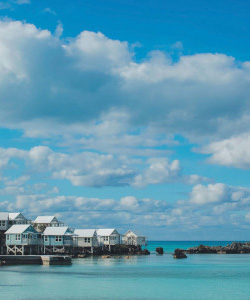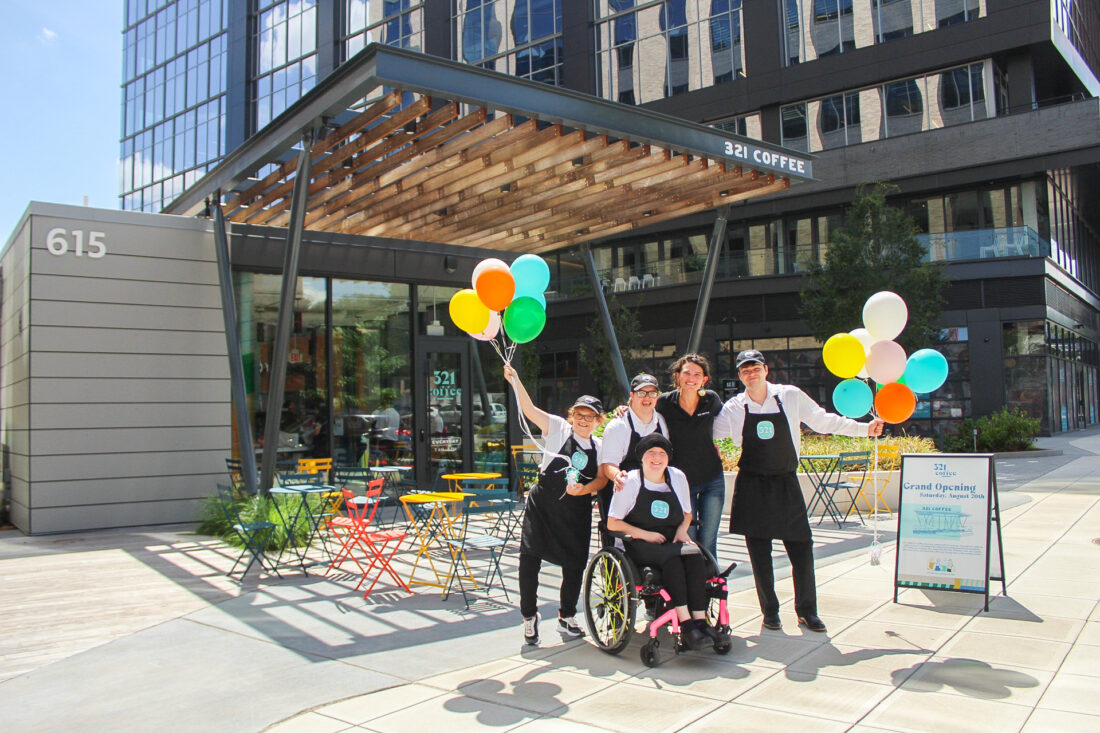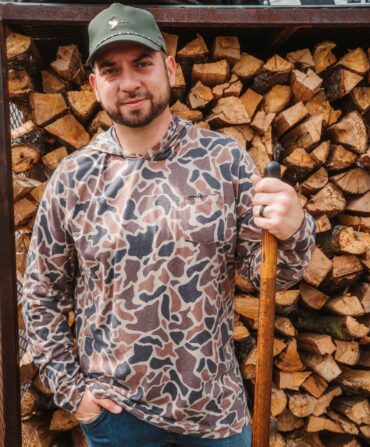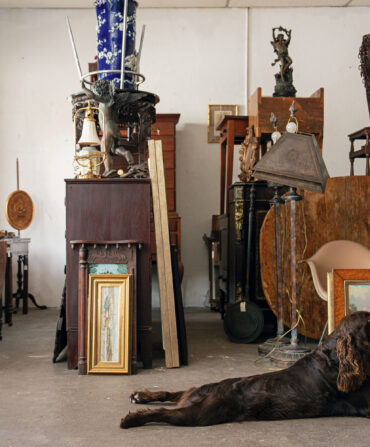For someone with an intellectual or developmental disability, it can be difficult to find accessible public spaces, let alone job opportunities. But in designing their buildings and business models to be more inclusive, these Southern coffee shops and eateries welcome everyone while serving quality food and pours.

Bitty & Beau’s
Wilmington, North Carolina, and other locations
Amy and Ben Wright opened their first coffee shop in Wilmington in 2016, after two of their four children were born with Down syndrome and they became aware of the high unemployment rate among Americans with the condition. To date, Bitty & Beau’s has hired more than 450 people with disabilities across its seventeen locations around the U.S., most of which are in the South. Beyond their in-store menu, which includes smoothies and light bites, you can purchase their coffee beans and canned cold brew on their website.
Tre Luna
Hoover, Alabama
Ten years ago, Brian and Erin Mooney partnered with KultureCity, a nonprofit that trains and certifies staff in sensory accessibility, to bring inclusion to their Italian restaurant and catering company in suburban Birmingham. Not only do they hire workers with disabilities, but they offer sensory bags to patrons, which include noise-canceling headphones, fidget items, and social cue cards, and have set up dedicated quiet spaces. “The experience of employing special needs individuals, that’s been such a gift to Tre Luna,” Erin says.
Mend Coffee and Goods
Atlanta, Georgia
In 2008, six months after she gave birth, Katherine Wolf survived a severe stroke that changed her life and familiarized her with the social isolation people with disabilities often experience. In 2024 she and her husband, Jay, opened a coffee shop that prioritizes hiring disabled individuals and giving them—and all guests—a safe, joyful space to interact over drinks, breakfast, or lunch. The Buckhead storefront also houses a small market of curated gifts and home goods that support inclusive employment efforts.
Non-Fiction Coffee
Pelham, Alabama
This Alabama-based coffee wholesaler and retailer extends its mission of supporting ethical industry practices to hiring individuals with disabilities. “If you don’t offer that space to grow, you really don’t see where they can flourish,” says Jeff Daniels, the company’s director of sales and business development. One employee, for example, only felt comfortable stamping bags when she first started her job but now plays a crucial role in maintaining the shop’s relationship with grocery stores. Non-Fiction Coffee also collaborated with KultureCity on a medium-roast blend, available in compostable K-cup pods, grounds, and beans; 100 percent of the proceeds support the nonprofit’s inclusivity mission.
Lazy Betty
Atlanta, Georgia
This Michelin-starred dining destination is best known for its elegant, creative tasting menus. But it was important to chef-partner and culinary director Ron Hsu that everyone feel safe and welcome, so the Midtown restaurant partnered with KultureCity to become sensory-certified, and the staff undergoes annual training to recognize and assist guests with sensory needs. “Our staff has fully embraced it, not just for guests but also for employees who may have non-visible disabilities,” Hsu says.
321 Coffee
Raleigh, North Carolina

At three locations across Raleigh, this inclusive coffee shop makes it a priority to hire workers with intellectual and developmental disabilities. (The name is a reference to Down syndrome, a condition in which individuals have three copies of the twenty-first chromosome). “We see between 90 and 100 percent retention rates every single year,” notes Lindsay Wrege, who started the business with cofounder Michael Evans during the pair’s freshman year at North Carolina State. The shop’s mission also encompasses sustainability; their coffee beans, which can be purchased online, use 80 percent less energy in the roasting process than typical beans.
Howdy Homemade
Dallas, Texas, and other locations
Since Tom Landis founded this ice cream shop in North Dallas in 2015, it has created 160 jobs for people with disabilities. Today the company operates seven locations around the U.S., including in Katy, Texas, and Shreveport, Louisiana, and is known for serving unique flavors of their homemade ice cream, like Dr. Pepper Chocolate Chip and Strawberry Milkshake.








